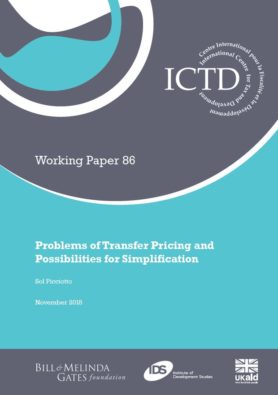ICTD Working Paper 86
The defects in the rules for allocation of the income of transnational corporations (TNCs) are at the heart of the current crisis in international corporate taxation. This paper explains how these rules emerged and developed, becoming increasingly complex, as they have shifted from a general concern to ensure a fair and reasonable allocation of the profits of TNCs, to methods focusing on treating all intra-firm transfers as transactions to be priced by reference to comparables. This approach has been extended to allocations of shared factors of production (capital, intangibles, central services, risk), for which methods based on the transactional approach are particularly unsuitable. These methods are time-consuming and difficult to administer, and also have generally been found to be ineffective, both in theory and practice. They require resource-intensive examination of the specific facts and circumstances of individual taxpayers, needing skilled analysis, and depending on subjective judgement. Hence, a variety of simplified methods have been devised, which are surveyed and analysed in this paper, especially from the point of view of their suitability for developing countries. Read the 2-page brief version here.
